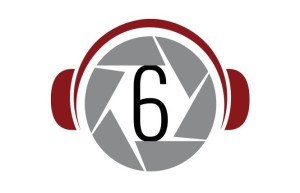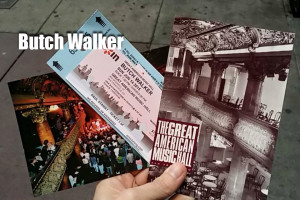Apple Killed the Record Store
4 min read
Press play and let’s take a journey, shall we?
I always have this strange thought whenever I pass the abandoned Tower Records building driving around town – I wonder if another music store will take its place. I know it’s a strange thought especially given today’s economic and social climate, but as I recently revisited one of my favorite guilty film pleasures, Empire Records, I did it with a sense of melancholy. There is a large part of me that knows that the music stores are going (or have gone) the way of the dinosaur. The truth of this is still hard to embrace. Maybe it’s because my teen years, and to a large extent, much of my early adult life were spent walking up and down the aisles in search of the newest undiscovered gems that some of these places had to offer. Or maybe it’s because I really did remember a day when the kids who worked in a record store were like privileged misfit guardians and gatekeepers into veiled world of all of my favorite tunes. I feel like I knew these kids at Empire Records, but instead of being named Lucas, AJ, Corey, Gina, Mark and the rest of the gang, the guys I knew had names like Tony or Clarence. The record store wasn’t just a place that harbored music. The music store was kind of one part social hub, one part treasure hunt destination and one part magazine library.
You see in a world that is all about the creation of new social networks, I think we sometimes eliminate some things in the process that cannot be replaced by the Facebooks , iTunes or Amazon’s of the world. Things like live human interaction and the randomness of just being able to actually go somewhere to discover something different. I know that some of what I’m describing is just the crazy acts of youth. But some of those acts I remember fondly like sometimes just buying a CD just because you were curious about the cover or showing up at five minutes before midnight to check for a new release or just going to the store to listen to music because you had nothing better to do. These are also the things that we can’t really gauge by sales receipts because these things all used to be a part of the old network of hubs and haunts that wasn’t necessarily better, but were definitely life shaping (at least they were for me).
Back to Empire Records – I wondered if Joe (the fictional store manager) would one day regret his decision to buy out Mitchell so that he could one day own Empire. How could anyone foresee the technological shift that would lead to Napster that would splinter into all the other music utilities and services that would eventually and finally put a closed sign in the window of Empire Records? I can imagine Lucas, who was now managing the store for Joe, writing that note that read, “Sorry – Apple Killed the Record Store. Sincerely, Empire Records.” Is that a horrible thought to tack onto a comedy? Sure. But I guess that’s kind of what passes through my mind as I drive around town and see the empty Tower Records building. I see the endgame of what I once thought was impossible. It’s strange example of how I think social media changed the world for the worse by giving us exactly what we wanted when Shawn Fanning, the creator of Napster, first offered us the instant gratification of owning any song or album we could ever want with the touch of a button. The ripple effect would one day lead to me talking to Rob Halford of Judas Priest about the changing landscape of music to which he could only reply, “It’s different…totally different.”
Listen, I’m not lamenting all change. I know that no one is crying for Tony Manero (from Saturday Night Fever) and the passing of his disco lifestyle with the death of Dance Fever or giving Turbo and Boogaloo (from Breakin’ and Breakin’ 2) much thought as the forerunners of hip hop dance as millions watch Randy Jackson’s “America’s Best Dance Crew.” Change, as a part of culture, is inevitable. If nothing else, we cultural historians use it as a frame of reference in which to make sense of the micro culture that we continue to gladly exchange for the super culture that we once had. As everything moves forward and becomes more and more compartmentalized, I’m certain that the employees are just fine. Maybe the world is better without the record store. I don’t know. But if I had to imagine what happened to the employees from Empire: Joe probably went on to become an internet mogul, Lucas went on to market his talents and wisdom on a tongue and cheek rock culture blog and Corey went on to be that girl in the Armageddon movie who sits in front of the NASA monitors while her dad sings love songs directly at her in a music video that makes us all feel slightly uncomfortable. Regardless, the record store era was a great time while it lasted.







Oh man
I am from Latinamerica and I grew up with music stores, I love “Empire Records” movie always I wanted to work in this kind of stores because I love music.
My town had a Music Store I remember them, they sold LPs and Casettes but the best part was they had 3 cabines for listen music and listen your new LP buyed or just asking for listen some new album and testing if it is good or not.
I really miss this times too
thanks for this article
Abel